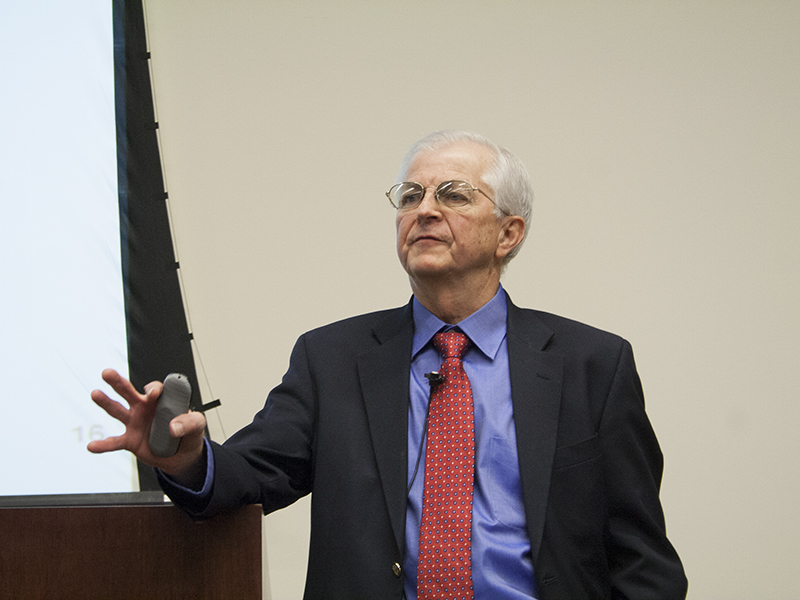
Executive Vice Chancellor and Provost Dallas Rabenstein hosted a town hall meeting on Feb. 25 to discuss the current status of UC Riverside’s budget. Despite some disheartening information provided about the current financial status of UCR, there was still an optimistic outlook into the future of the university.
Some of the notable administrators in attendance included Chancellor Jane Conoley, Vice Chancellor of Student Affairs Jim Sandoval and Athletics Director Brian Wickstrom.
“We have aspirations to become a major research university and by some measures we are already,” began Rabenstein as he presented recent rankings by the University of Leiden—UCR placed 29th out of 500 major universities worldwide. The rankings measured scientific impact by the work that is being done by the faculty.
From that introduction, Rabenstein moved on to the financial status of UCR and the UC system. He pointed out some of the disinvestments Sacramento has made to the UC system in the past several years. Since 2009, UCR has suffered from close to $100 million in reductions, with $47.6 million coming from 2012 alone. In that same year, Sacramento decreased funding for the University of California by $750 million.
Rabenstein also talked about the passage of Proposition 30 in November. He stated that although the UC system will not suffer from additional reductions, it will not receive any new state funding either. Also, since no one knows what the state budget will be for the upcoming year, Rabenstein pointed out that it’s impossible to know what next year’s budget plan will look like for UCR.
With that, the conversation transitioned into a discussion about the future of the campus. There was substantial information provided about UCR 2020, a plan to grow the campus by improving students’ academic performances and faculty impact to the community.
Rabenstein first noted important statistics that have come from students. Since 2008, the grade point average and placement tests scores have gradually improved for incoming freshmen.
UCR 2020 is a plan that lays out the aspirations for the campus. According to Rabenstein, the first aspiration is to become a major research university. To do that, UCR’s research funding would have to increase threefold. To make that happen, Rabenstein noted that UCR would have to search for more grants and expand faculty size.
“We have to be very focused and strategic in the hiring that we will do,” he said.
With the current statistics of UCR’s academic performance and the impact that the current faculty is having on the scientific community, the provost feels confident UCR’s goals will be reached.








